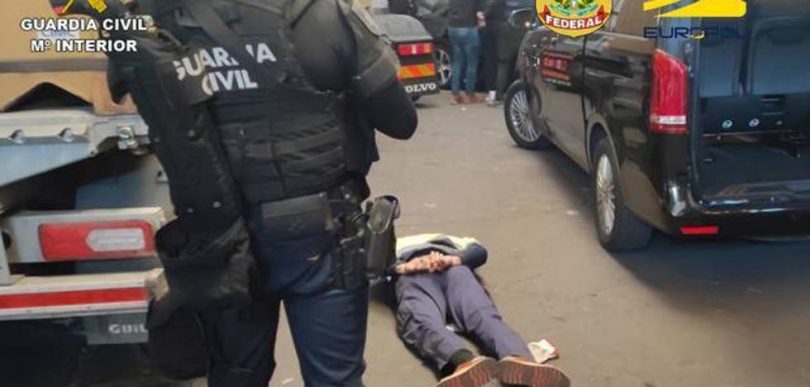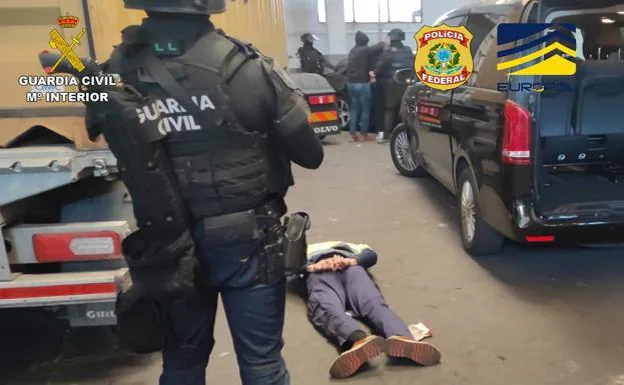[ad_1]
An image from the police operation. /
An investigation by police in several countries has broken up an organisation which introduced large quantities of cocaine into Europe
It is one of the oldest tricks in drug trafficking. A container is cleared by Customs but before it is loaded onto a ship someone opens it, puts packs of cocaine inside and closes it again with seals which look like the official ones. This is how a gang has been sending cocaine from Brazil to Europe via Spanish ports, but an operation involving Europol, the American DEA and the Brazilian federal police has now broken up that organisation.
The Brazilian authorities are now checking possible links with Sérgio Roberto de Carvalho, better known as Major Carvalho because of his rank in the Brazilian military police until 2018, who is considered one of the biggest drug lords and had fled the country.
His story reads like a film script. After leaving Brazil he settled in Marbella, using the name Paul Wouter, but this new identity didn’t last long because a police operation linked him to a haul of 1,700 kilos of cocaine which had been found in Galicia. The prosecution asked for him to be given a 13-year jail sentence, but a few days later the court which was handling the case received a death certificate in his name.
Paul Wouter had died – on paper, at least – from Covid-19 at his home in Marbella. The certificate was dated 29 August 2020 and apparently signed by a doctor. He had also apparently been cremated. However, not long afterwards the Brazilian authorities told their counterparts in Spain – where the case against him had been shelved – that Wouter’s fingerprints coincided with those of Carvalho. They were the same person. They believed he was still alive and that after faking his death he went to Portugal and from there either Dubai or Ukraine.
The Brazil police believe Carvalho was linked with the group which has now been broken up, one of the most active in drug trafficking between South America and Europe. The investigation began just over a year ago, when the Guardia Civil focused their attention on the increase in cocaine found in Spanish ports, all of which had used the trick of adding the cocaine to the containers after they were checked. In April last year they intercepted 300 kilos of cocaine in Valencia port and detained three people who were using an authorised vehicle to operate in the port to remove the drugs from a container.
The investigation then identified the leaders of the group, from Dubai to Brazil, and confiscated nearly 4,900 kilos of cocaine in different operations in Spain. Four people were arrested in Barcelona, and police searches found 400 kilos of cocaine which had just arrived from Brazil, an indoor marijuana plantation, several high range vehicles, encrypted mobile phones and jewellery.
Simultaneously, the police in Brazil searched 30 homes and arrested 20 people. Carvalho, however, for the moment at least, is still at large.
[ad_2]
Source link









